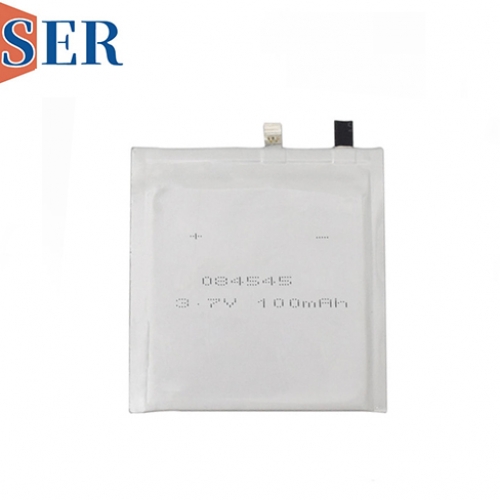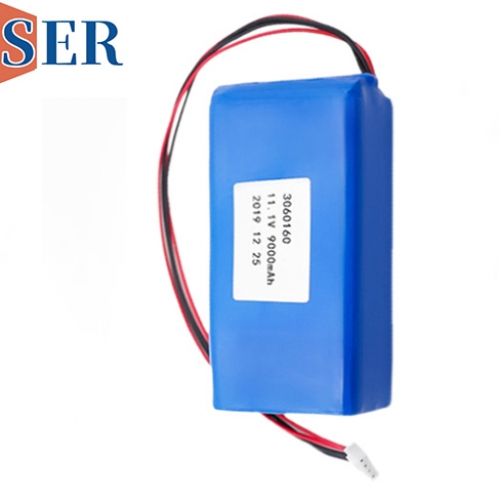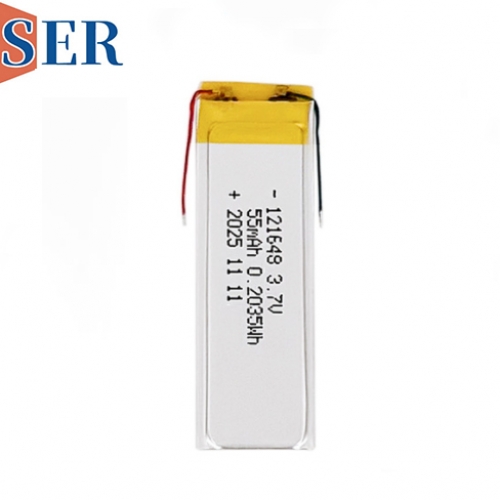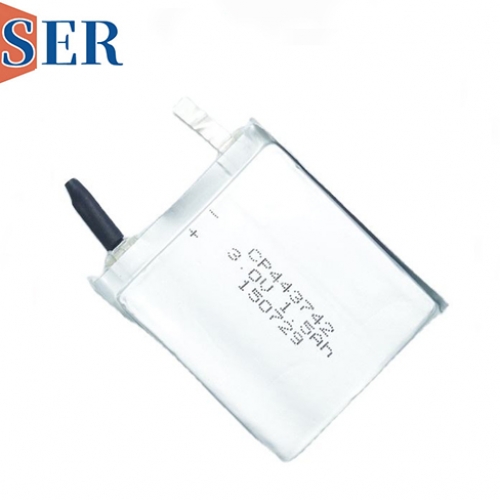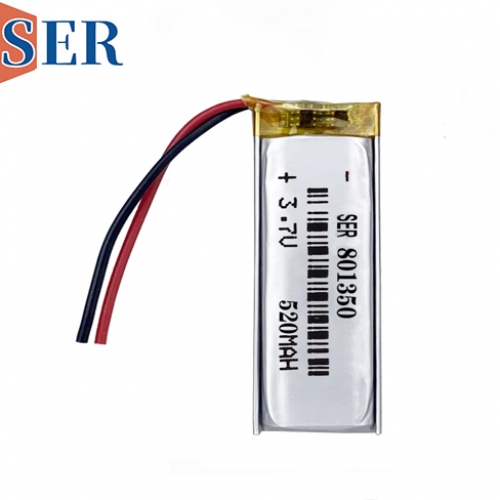Rechargeable Ultra Thin battery 074040 3.7V 70mAh and Ultra Thin Lithium Polymer Battery 091525 3.7V 15mah for GPS Tracker
Rechargeable Ultra Thin battery 074040 3.7V 70mAh and Ultra Thin Lithium Polymer Battery 091525 3.7V 15mah for GPS Tracker
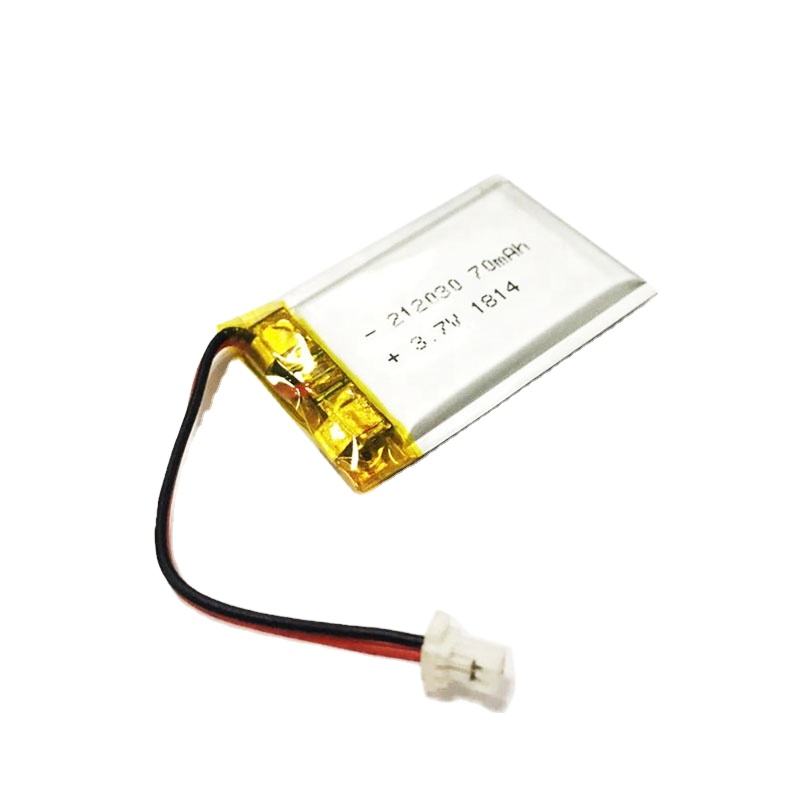
In today's fast-paced and technology-driven world, the demand for compact, lightweight, and high-performance portable devices has skyrocketed. From GPS trackers that keep us connected and safe to wearable gadgets that monitor our health and fitness, these devices have become an integral part of our daily lives. At the heart of these innovations lies a crucial component: the battery. Specifically, ultra-thin rechargeable lithium-ion polymer (Li-polymer) batteries have emerged as the go-to power source for a wide range of applications, offering a perfect blend of energy density, flexibility, and reliability. In this in-depth exploration, we will delve into the world of ultra-thin batteries, focusing on two remarkable products: the 074040 3.7V 70mAh Li-polymer battery and the 091525 3.7V 15mAh ultra-thin Li-polymer battery, both designed to elevate the performance of GPS trackers and other portable devices.
The Rise of Ultra-Thin Rechargeable Batteries
The Need for Compact Power Solutions
As electronic devices continue to shrink in size while increasing in functionality, the need for compact and efficient power sources has become more pressing than ever. Traditional batteries often fall short in meeting these demands, as they tend to be bulky, heavy, and limited in their energy storage capabilities. Ultra-thin rechargeable batteries, on the other hand, offer a game-changing solution. With their slim profiles and high energy densities, these batteries enable designers to create sleeker, more portable devices without compromising on performance.
The Advantages of Li-Polymer Technology
Lithium-ion polymer batteries have gained widespread popularity due to their numerous advantages over other battery technologies. Unlike traditional lithium-ion batteries that use a liquid electrolyte, Li-polymer batteries employ a solid or gel-like polymer electrolyte. This unique construction offers several benefits, including:
Flexibility and Form Factor: The polymer electrolyte allows for greater flexibility in battery design, enabling the creation of ultra-thin and custom-shaped batteries that can fit into even the most compact devices.
Higher Energy Density: Li-polymer batteries typically have a higher energy density compared to other battery types, meaning they can store more energy in a smaller volume. This translates to longer battery life for portable devices.
Improved Safety: The solid or gel-like electrolyte in Li-polymer batteries reduces the risk of leakage and thermal runaway, making them a safer option for consumer electronics.
Lightweight: Li-polymer batteries are generally lighter than their lithium-ion counterparts, contributing to the overall weight reduction of portable devices.
Introducing the 074040 3.7V 70mAh Li-polymer Battery
Overview and Specifications
The 074040 3.7V 70mAh Li-polymer ultra thin battery is a high-performance power solution designed specifically for applications that require a compact and reliable energy source. With its ultra-thin design, measuring just [insert dimensions], this battery is ideal for use in GPS trackers, smartwatches, fitness bands, and other small electronic devices.
Key specifications of the 074040 battery include:
Voltage: 3.7V
Capacity: 70mAh
Chemistry: Lithium-ion polymer
Dimensions: [Insert dimensions]
Weight: [Insert weight]
Cycle Life: [Insert cycle life]
Features and Benefits
Ultra-Thin Design: The slim profile of the 074040 battery allows for seamless integration into compact devices, enabling designers to create sleek and stylish products without sacrificing battery capacity.
High Energy Density: Despite its small size, the 074040 battery offers a respectable 70mAh capacity, providing sufficient power to keep your device running for extended periods.
Rechargeable: The battery is rechargeable, allowing for multiple charge-discharge cycles and reducing the need for frequent battery replacements. This not only saves money but also reduces environmental waste.
Stable Performance: The Li-polymer technology ensures stable voltage output throughout the battery's discharge cycle, resulting in consistent device performance.
Long Cycle Life: With a high cycle life, the 074040 battery can withstand numerous charge and discharge cycles without significant capacity degradation, ensuring long-term reliability.
Applications
The 074040 3.7V 70mAh Li-polymer battery is well-suited for a wide range of applications, including:
GPS Trackers: For tracking devices used in personal safety, pet tracking, and asset management, the ultra-thin design and reliable power of the 074040 battery make it an ideal choice.
Wearable Devices: Smartwatches, fitness bands, and other wearable gadgets require compact and lightweight batteries that can provide sufficient power for extended use. The 074040 battery meets these requirements perfectly.
Medical Devices: Portable medical devices such as blood glucose monitors, hearing aids, and wearable health monitors can benefit from the small size and high energy density of the 074040 battery.
Remote Controls: Remote controls for various electronic devices, including toys, drones, and home automation systems, can be made more compact and user-friendly with the integration of the 074040 battery.
Exploring the 091525 3.7V 15mAh Ultra-Thin Li-polymer Battery
Overview and Specifications
The 091525 3.7V 15mAh ultra-thin Li-polymer battery is another exceptional power solution designed for ultra-compact devices. With its incredibly thin profile, measuring just 0.9mm in thickness, this battery is perfect for applications where space is at a premium.
Key specifications of the 091525 battery include:
Voltage: 3.7V
Capacity: 15mAh
Chemistry: Lithium-ion polymer
Dimensions: [Insert dimensions]
Weight: [Insert weight]
Cycle Life: [Insert cycle life]
Features and Benefits
Ultra-Thin Profile: At only 0.9mm thick, the 091525 battery is one of the thinnest rechargeable batteries available on the market. This makes it ideal for use in devices that require a minimal footprint, such as credit card-sized GPS trackers or ultra-slim wearables.
Lightweight: Despite its high energy density, the 091525 battery is extremely lightweight, contributing to the overall weight reduction of portable devices.
High Energy Density: Despite its small capacity of 15mAh, the 091525 battery offers a high energy density for its size, providing enough power for short-term or low-power applications.
Rechargeable: Like the 074040 battery, the 091525 battery is rechargeable, allowing for multiple use cycles and reducing the need for battery replacements.
Stable Voltage Output: The Li-polymer technology ensures stable voltage output, ensuring consistent device performance even as the battery discharges.
Applications
The 091525 3.7V 15mAh ultra-thin Li-polymer battery is ideal for a variety of ultra-compact applications, including:
Credit Card-Sized GPS Trackers: For discreet tracking devices that can be easily carried in a wallet or pocket, the 091525 battery's ultra-thin design and sufficient power make it an excellent choice.
Miniature Wearables: Tiny wearable devices such as smart rings, earbuds, or micro-sensors can benefit from the small size and lightweight nature of the 091525 battery.
Disposable or Low-Power Devices: For devices that are used infrequently or require minimal power, such as disposable medical sensors or smart labels, the 091525 battery provides a cost-effective and compact power solution.
RFID Tags: Radio Frequency Identification (RFID) tags used in inventory management, access control, and other applications can be made more compact and efficient with the integration of the 091525 battery.
Optimizing Performance: Tips for Using Ultra-Thin Rechargeable Li-Polymer Batteries
Charging and Discharging
To ensure the longevity and optimal performance of your ultra-thin rechargeable Li-polymer batteries, it's essential to follow proper charging and discharging practices. Here are some tips:
Use the Right Charger: Always use a charger specifically designed for Li-polymer batteries. Using an incompatible charger can lead to overcharging, undercharging, or other issues that can damage the battery.
Avoid Overcharging: Overcharging can cause the battery to overheat, reducing its capacity and potentially posing a safety risk. Most modern chargers have built-in protection mechanisms to prevent overcharging, but it's still important to monitor the charging process.
Don't Over-Discharge: Over-discharging a Li-polymer battery can also damage it and reduce its overall lifespan. It's recommended to recharge the battery before it reaches a critically low voltage level.
Partial Charging: Unlike some other battery technologies, Li-polymer batteries do not suffer from the "memory effect." This means you can recharge them at any time, even if they are not fully discharged, without affecting their capacity.
Storage and Handling
Proper storage and handling of ultra-thin rechargeable Li-polymer batteries are crucial for maintaining their performance and safety. Here are some guidelines:
Store at the Right Temperature: Li-polymer batteries should be stored in a cool, dry place at a temperature between 15°C and 25°C (59°F and 77°F). Extreme temperatures can affect the battery's chemistry and reduce its capacity.
Avoid Physical Damage: Ultra-thin batteries are more susceptible to physical damage due to their thin construction. Handle them with care to avoid puncturing, bending, or crushing the battery.
Keep Away from Moisture and Corrosive Substances: Moisture and corrosive substances can damage the battery's casing and internal components. Store the batteries in a sealed container or the original packaging to protect them from these elements.
Regular Inspection: Periodically inspect your batteries for signs of damage, such as swelling, leakage, or discoloration. If you notice any abnormalities, discontinue use immediately and dispose of the battery properly.
The Future of Ultra-Thin Rechargeable Li-Polymer Batteries
As technology continues to advance, the demand for even smaller, more powerful, and longer-lasting batteries will only increase. Ultra-thin rechargeable Li-polymer batteries are at the forefront of this innovation, offering a promising solution for the next generation of portable devices.
Advancements in Battery Technology
Researchers and manufacturers are constantly working on improving the performance of Li-polymer batteries. Some of the areas of focus include:
Increasing Energy Density: By developing new materials and manufacturing processes, scientists aim to increase the energy density of Li-polymer batteries, allowing them to store more energy in a smaller volume.
Faster Charging: Faster charging technologies are being explored to reduce the time it takes to recharge batteries, making them more convenient for users.
Enhanced Safety Features: Further improvements in battery safety are being made to minimize the risk of thermal runaway, leakage, and other potential hazards.
Flexible and Stretchable Batteries: The development of flexible and stretchable Li-polymer batteries opens up new possibilities for wearable devices and other applications that require batteries to conform to irregular shapes.
Integration with Emerging Technologies
Ultra-thin rechargeable Li-polymer batteries will play a crucial role in the integration of emerging technologies such as the Internet of Things (IoT), 5G connectivity, and artificial intelligence (AI). These technologies require compact and efficient power sources to enable the widespread deployment of smart devices and connected systems.
Conclusion
In conclusion, ultra-thin rechargeable Li-polymer batteries have revolutionized the world of portable devices, offering a perfect combination of compact size, high energy density, and reliable performance. The 074040 3.7V 70mAh Li-polymer battery and the 091525 3.7V 15mAh ultra-thin Li-polymer battery are two excellent examples of these innovative power solutions, designed to meet the specific needs of GPS trackers, wearable devices, and other compact electronics.
By understanding the advantages of Li-polymer technology, following proper charging and discharging practices, and staying informed about the latest advancements in battery technology, you can maximize the performance and lifespan of your ultra-thin rechargeable batteries. As we look to the future, these batteries will continue to play a vital role in shaping the next generation of portable and connected devices, making our lives more convenient, efficient, and enjoyable. So, whether you're a device manufacturer looking for the perfect power source or a consumer seeking a reliable and long-lasting battery for your portable gadget, ultra-thin rechargeable Li-polymer batteries are undoubtedly the way to go.

